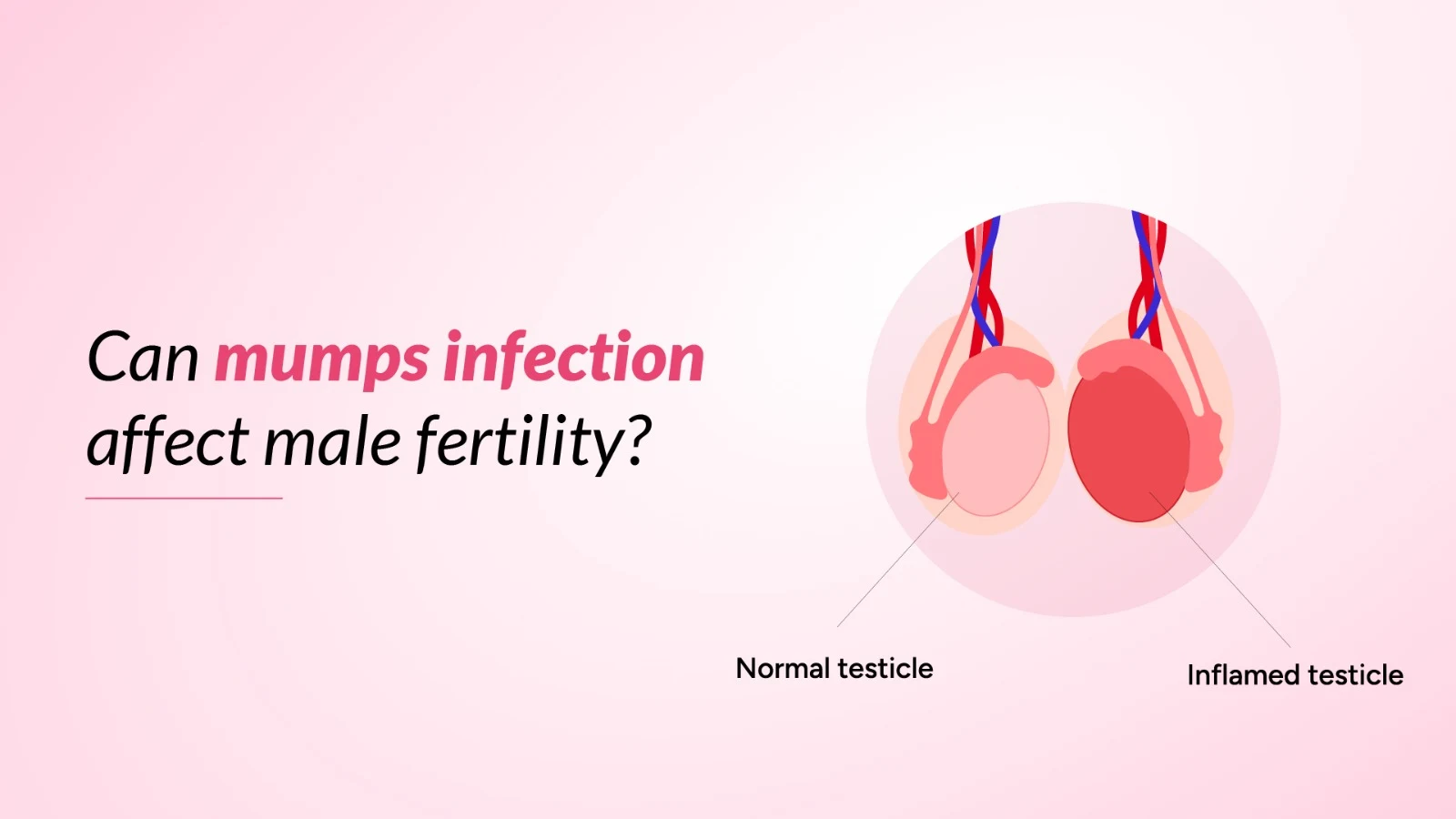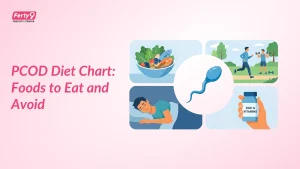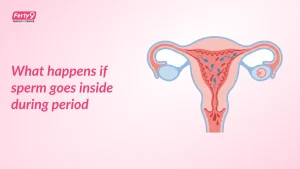The mumps virus, a highly contagious pathogen, is primarily known for causing the distinctive swollen and painful cheeks symptomatic of the illness. However, this viral infection can also have far-reaching consequences, particularly for men’s reproductive health. In this comprehensive guide, we delve into the intricate relationship between mumps and male fertility, exploring the potential impact of this disease on the male reproductive system and the steps that can be taken to mitigate its effects.
Suggested read: AndroMax: Ferty9’s Solution for Enhancing Male Fertility
What is Mumps?
Mumps is a viral illness. The culprit behind this is the mumps virus, a member of the Paramyxoviridae family. This virus primarily targets the salivary glands, leading to the characteristic swelling of the cheeks and jaw. While mumps was once a common childhood disease, the widespread implementation of vaccination programs has significantly reduced its prevalence in many parts of the world.
Also read: Fertility and Nutrition: Foods and Supplements That May Boost Male Fertility
Common Symptoms of Mumps
The most notable symptom of mumps is the swelling & tenderness of one or both parotid glands, which are the salivary glands located near the ears. Additional symptoms may include:
- A mild to moderate fever
- Headache
- Muscle aches & stiffness, most common in the neck and jaw
- Fatigue
- Loss of appetite
- Pain or discomfort while chewing or swallowing
Mumps can also lead to complications affecting other organs, such as the testicles, ovaries, pancreas, and brain.
Also read: Why Male Infertility Rates Are Rising in India
How Mumps Spreads
As a highly contagious disease, mumps can be transmitted through a variety of routes, such as:
- Direct contact via respiratory droplets from an infected person’s cough or sneeze
- Sharing utensils, cups, or other objects contaminated with the virus
- Close, prolonged contact with an infected individual
The virus can survive on surfaces & objects for several hours, increasing the risk of transmission.
Related read: Why Quitting Tobacco is Essential for Male Infertility
Mumps and the Male Reproductive System
While mumps primarily affects the salivary glands, the condition can also impact the male reproductive system, particularly the testicles. This complication, known as mumps orchitis, occurs in approximately 20-30% of males who contract mumps after puberty.
Mumps orchitis is an inflammation of one or both testicles caused by the mumps virus travelling through the bloodstream and infecting the testicular tissue. This condition can lead to severe testicular pain, swelling, and tenderness, often accompanied by fever and nausea.
Mumps and Fertility
The potential impact of mumps on male fertility has been a subject of concern and extensive research. Mumps orchitis can cause temporary or, in rare cases, permanent testicular damage, leading to reduced sperm production and potential infertility.
Several studies have shown that mumps orchitis can result in:
- Decreased sperm count
- Reduced sperm motility
- Abnormal sperm morphology
These changes in sperm quality and quantity make it more difficult for affected individuals to conceive naturally.
However, it is essential to note that the risk of permanent infertility due to mumps orchitis is relatively low, with most cases resulting in temporary impairment of fertility. The severity of the impact on fertility often depends on factors such as the extent of testicular inflammation, the age at which the infection occurs, and the prompt treatment of the condition.
Related read: Boost Male Fertility Naturally: Diet and Lifestyle Tips
How Mumps and Its Complications Are Diagnosed
Diagnosing mumps involves a combination of clinical symptoms and laboratory tests. Doctors may perform the following tests:
- Physical Examination: Doctors will inspect for swollen salivary glands and other potential complications.
- Blood Tests: To detect the presence of mumps-specific antibodies or measure the levels of inflammation markers.
- Imaging Tests: Ultrasound or other imaging techniques help assess testicular inflammation in cases of suspected mumps orchitis.
Early diagnosis & prompt treatment are elementary in managing mumps and its potential complications, including the impact on male fertility.
Also read: Male Infertility Testing: Understanding the Process and Results
Available Treatments for Mumps and Mumps-related Orchitis
While there is no specific antiviral treatment for mumps, supportive care and symptom management are essential. For mumps orchitis, the doctor may recommend the following treatments:
- Analgesics & anti-inflammatory medications to alleviate pain and reduce inflammation
- Application of cold packs or scrotal support to provide relief and minimise swelling
- Bed rest and avoidance of strenuous activities to promote healing
- In severe cases, hospitalisation and intravenous fluids may be necessary
Prompt treatment of mumps orchitis can help minimise the risk of long-term complications, including potential fertility issues.
Also read: How Ferty9’s Fertility Counseling Services Address Your Specific Needs?
Coping with Infertility
In cases where mumps orchitis has led to fertility problems, individuals may explore various options to address their concerns, such as:
- Assisted reproductive technologies (ART), including in vitro fertilisation (IVF) or intracytoplasmic sperm injection (ICSI)
- Sperm banking or cryopreservation before undergoing treatments that may affect fertility
- Counselling and support groups to cope with the emotional impact of infertility
It is essential to seek guidance from reproductive health specialists and fertility experts to explore the most appropriate options based on individual circumstances.
Find Hope and Solutions for Infertility Problems—Explore Our Comprehensive Services
IVF Treatment
IUI Treatment
ICSI Treatment
Fertility Preservation Service
Blastocyst Culture & Transfer Treatment
Conclusion
Mumps, while primarily known for their impact on the salivary glands, can also have significant consequences on male fertility. The mumps virus can cause orchitis, an inflammation of the testicles. It can lead to decreased sperm production & poor quality, increasing the risk of infertility. With prompt diagnosis and appropriate treatment, the long-term effects of mumps orchitis on fertility can often be mitigated.
Preventive measures, such as vaccination, remain the most effective way to protect against mumps and its potential complications. By understanding the relationship between mumps and male fertility, one can make better decisions about their reproductive health and take proactive steps to safeguard their future fertility.




























